
ATLANTA — Here is a town of beautiful, green, historic communities, traditionally competitive for who has the best parks or bars or restaurants or life style or most trees. I never saw them work toward a common goal until the Georgia Department of Transportation (DOT) decided a massive highway system through the area was the future. It was no ordinary super freeway. No, this one had the Jimmy Carter Library at its political center and people were falling all over themselves to make it happen. Some of those green belts to be buried under pavement were designed by Frederick Law Olmsted in the late 1800s. You may have heard of him or been to one of his more famous creations in New York City — Central Park.
It got ugly. The powers that be — including newspapers that largely ignored journalism standards of objectively and fairness — decided the deal was done, and told the communities: live wth it. The communities, which put their soul and labor into making this city the great one it is weren’t about to roll over because political grand poohbahs and journalistic self-interests told them too. Standing with the communities were Manyard Jackson, Atlanta’s first black mayor, and civil rights icon and Congressman John Lewis. You know the name and the legend but you may not know of his help and guidance in what has been called The Second Battle of Atlanta. Lewis and Jackson stood up to political interests and powerful media when they could have looked the other way.
Ruth Wall was one of the community agitators who recalled recently at the project’s 25th reunion, that Lewis brought more than political clout in Congress to the scene.
“In 1982 you were defying continuous calls from former president Jimmy Crater for you to support his destructive highway through our neighborhoods. You were there to teach the Roadsters proper civil disobedience — they chained themselves to and climbed trees before they were arrested in Shadyside and Dellwood parks were you famously said, ‘This land is OUR land, not the land of Jimmy Carter.”
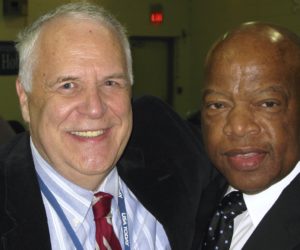
Lewis held a public rally that attracted 3,000 people. Communities learned being right wasn’t enough. You had to learn about political power and get involved. They did. As the fight wore on, more than 67 anti-road politicians were elected between 1982-1991.
A man named Bud Foote wrote songs that became legend because they showed the absurdity of the opposition, The DOT actually thought it could appease the garden clubs and civil organizations by planting dogwood trees down the center of the concrete monstrosity — dogwoods are almost sacred in Georgia. Foote called ’em out with a ditty called “Plant A tree For Jesus.”
“Gonna put the city down
Gonna build them a big ol’ 19-laner
Through the prettiest part of the town
Turn the key in the ignition
And what do you think they see?
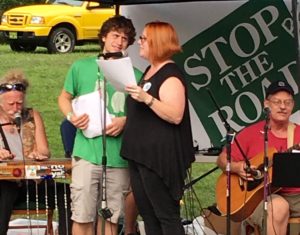
There in the middle of the right of way stood a pretty little dogwood tree
Plant a little tree for Jesus, one for the brotherhood of man
One for the freedom and one for the sea and one for the children in ‘Nam
And if you can’t make a revolution or pick up the heavy load
Plant a tree in the middle of the road
That song was so well known when Foote died they sang it at his memorial service, which I am sure would have made him a happy man.
In the early ’90s, Chuck Seeliger, a DeKalb County Superior Court Judge, ordered representatives of the communities, the state and the city into a series of meetings to come to an agreement. That resulted in a short parkway that didn’t destroy any parks or communities and
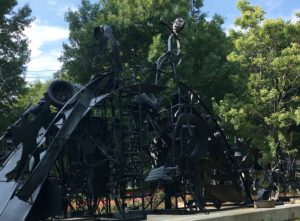
a new one, Freedom Park in which in 2005 “The Bridge,” was dedicated. It’s a sculpture by Thornton Dial honoring 10 years of dedication to the Stop the Road cause by John Lewis. It features in metal that other road associated with Lewis, the one across the Edmund Pettus Bridge where on “Bloody Sunday,” March 7, 1965, Lewis was beaten so badly by Alabama State Troopers his skull was fractured. The march to Montgomery was fighting for the people’s right to vote.
Lewis had these words for the 25th anniversary of the road victory.
“I want to thank each one of you for never, ever giving up. Or losing hope. For keeping your faith and for keeping your eyes on the prize. I feel very blessed to represent each and every one of you in the Congress.”
He said he too learned from the experience. “When you see something that is not right, not just, you have a moral obligation to stand up. To speak up. And speak out. And find a way to get into what I call ‘trouble.’ Good trouble. Necessary trouble.”
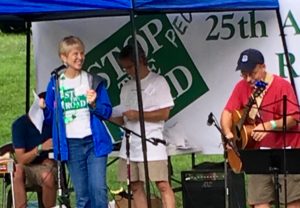
In the future, he said, these ordinary citizens can look back on their effort and know it changed the politics of Atlanta. There are struggles to come and they won’t last days or weeks or years. “Our struggle to make things better is a struggle of a lifetime. So hang in there. There are other battles to be won …”
Words of wisdom from a man who would know. The activists were as tough as they needed to be, although there always was a sense of humor. They meet in homes and restaurants and parks around town. Nina Gentry could always make people laugh when things were going so well.
The newspapers called the communities activities “old hippies” and did their best to discredit them. Some of those “old hippies” like song writer Foote have passed on. Others came to the 25th reunion in wheelchairs. But their spirits were high, it was a victory celebration all over again. As for the journalists, I don’t know if they really thought miles of concrete served the city better than parks, trees and tight-knit communities or they sold their souls and integrity to keep their jobs. I’ll leave that to history’s judgment. The newspapers moved out of downtown Atlanta. The communities remain and because of it Atlanta is a place on the move, a desirable place to live or visit.
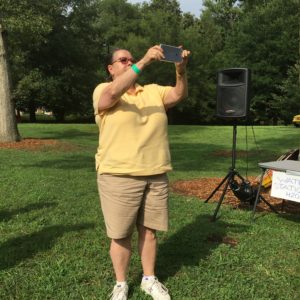
The community activists for all the indignities they suffered and all the name-calling and rudeness can hold their heads high as an example of what regular, ordinary people can do when they join for the better good overall. There were many folks too young to have been a part of the campaign at the 25th reunion. They can learn from this and step up when they’re needed. As John Lewis said, “Our struggle to make things better is a struggle of a lifetime.”

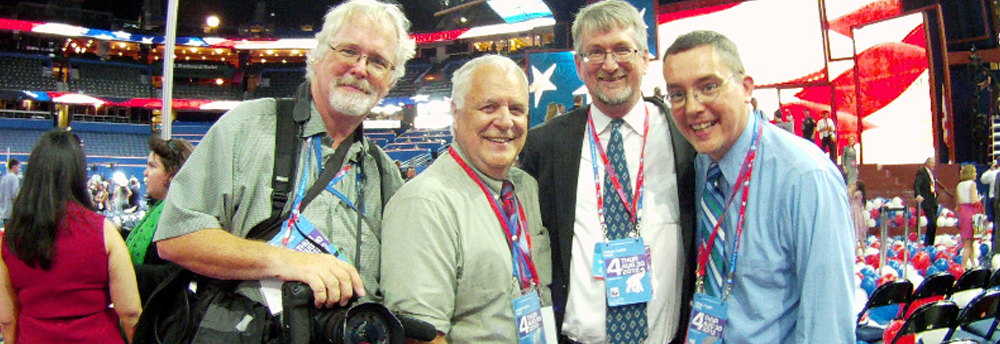
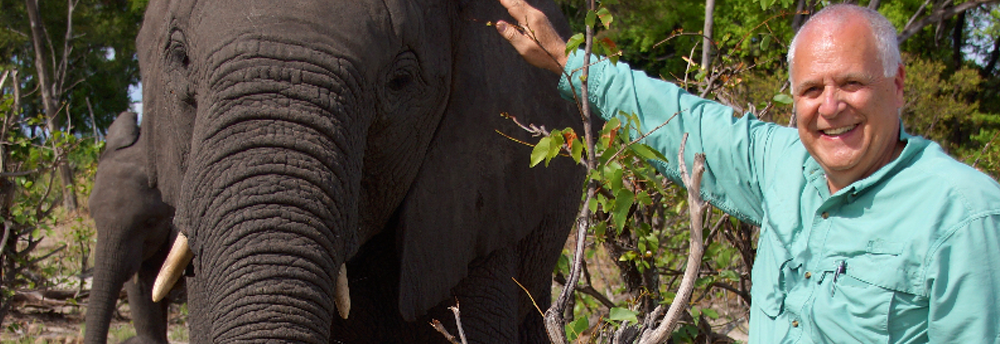


Sorry, comments are closed for this post.